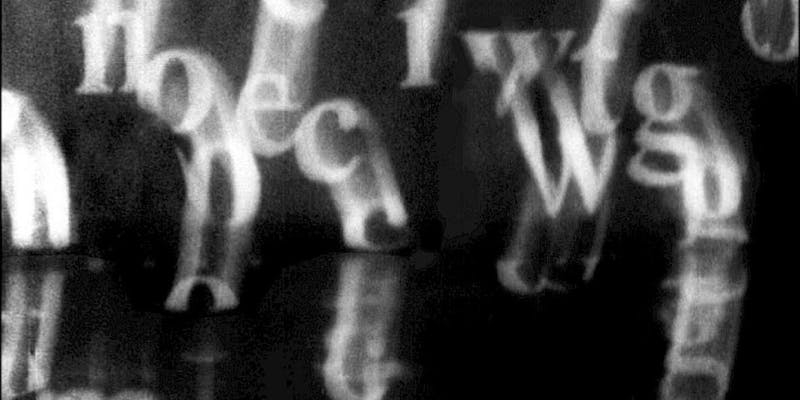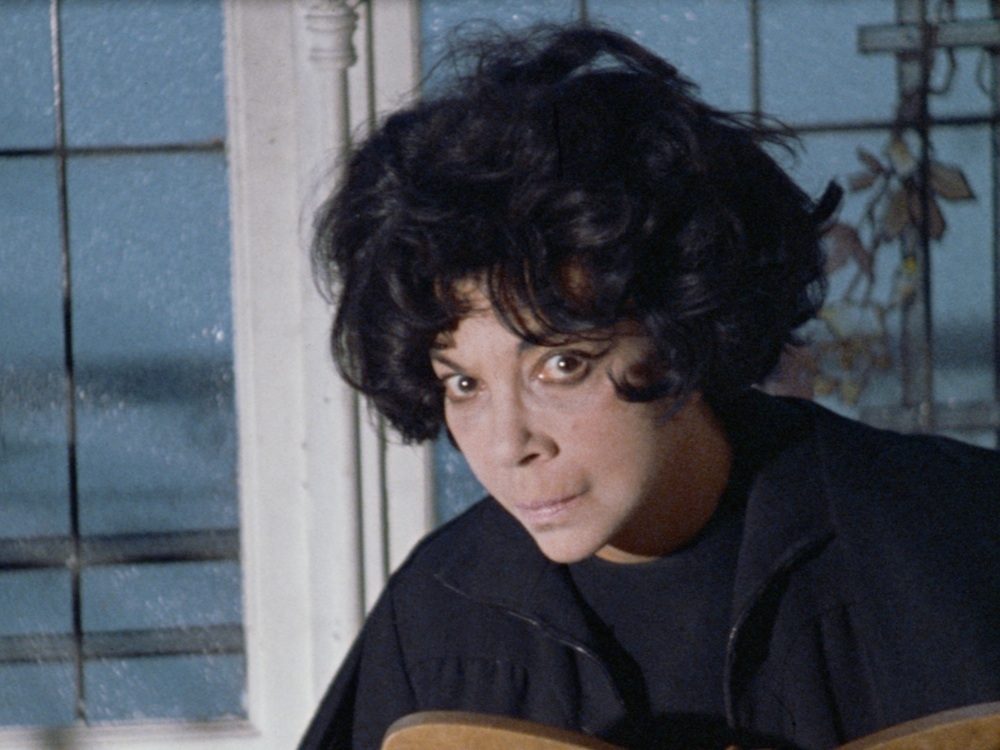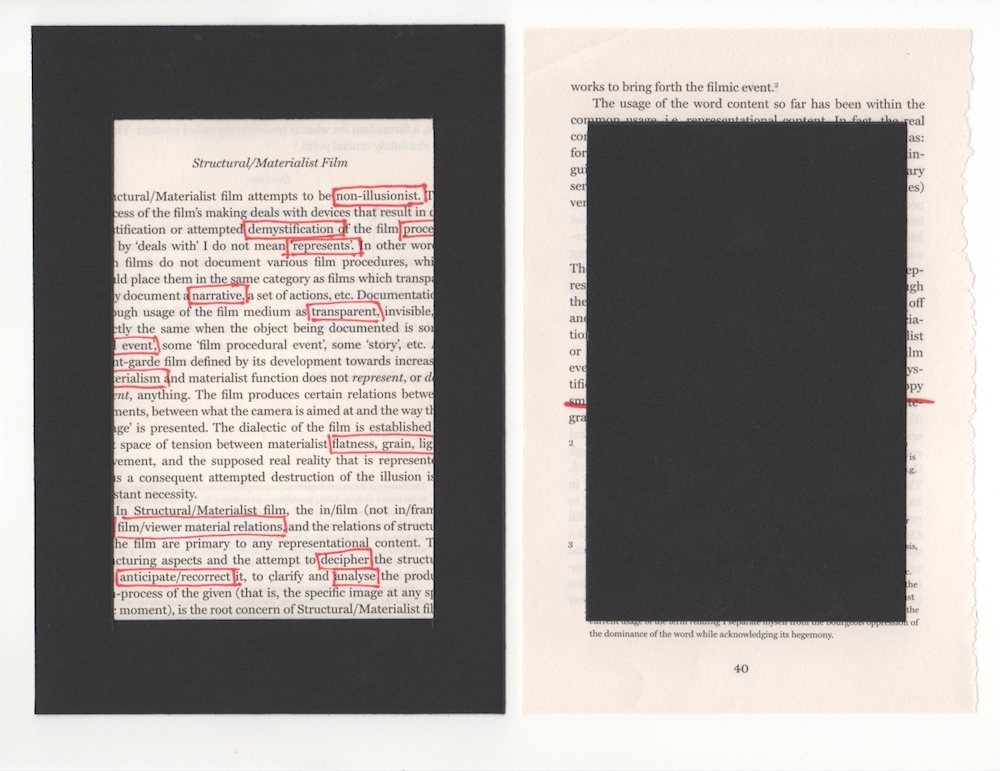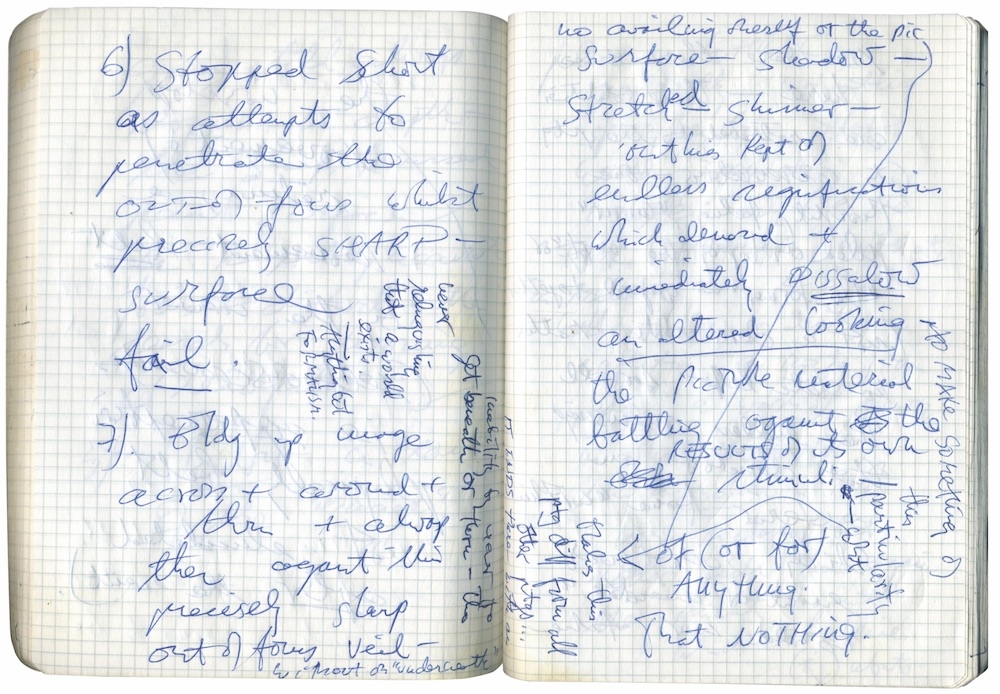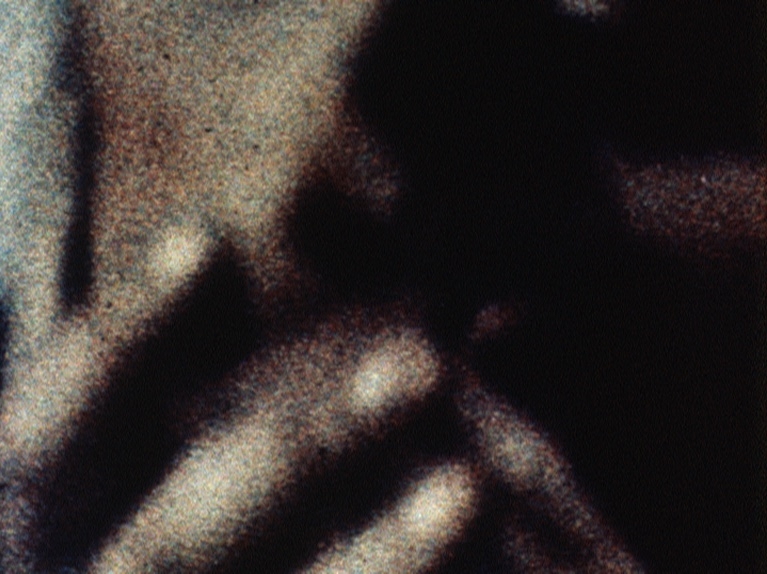Typofilm / Lis Rhodes
Typofilm: Lis Rhodes / Light Reading
Lis Rhodes, Light Reading, 1978, 20 min
& other works
Introduced by María Palacios Cruz
An emblematic figure of the British scene, Lis Rhodes made Light Reading in 1978, an experimental and feminist film noir. Through its voice-over, an investigation into the grammar of gaze and language is developed.
In this artist’s productions, the work of writing maintains a poetic relationship with the presence of the text in its material, handwritten or typographical consistency.
The session is presented by María Palacios Cruz, editor of Telling Invents Told, an anthology of writings by Lis Rhodes published by The Visible Press in 2019.
The screening is part of the “TypoFilm” project, developed within the framework of the ArTeC University Research School, and is organised to coincide with the Extra! 2022 Festival of Literature.
Copies of Telling Invents Told will be available for purchase at the event.

